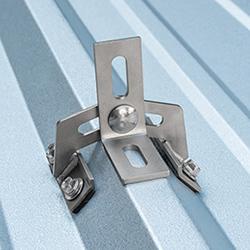Help conserve water by choosing solar panels that are responsibly made: REC Group's call to action for homeowners and businesses
The energy supply sector is with around 35% currently the largest contributor to global greenhouse gas emissions, with residential and commercial buildings consuming over half of all electricity.[1] Despite the positive impact of solar panels in reducing carbon footprints, their production involves resource-intensive processes, including the use of water.
In the pursuit of environmental sustainability, homeowners and businesses are increasingly turning to solar panels to reduce their carbon footprint. While clean energy solutions are vital in combating climate change, it is essential to pay attention to the broader environmental impact of the manufacturing processes behind these clean technologies.
The energy supply sector is with around 35% currently the largest contributor to global greenhouse gas emissions, with residential and commercial buildings consuming over half of all electricity.[1] Despite the positive impact of solar panels in reducing carbon footprints, their production involves resource-intensive processes, including the use of water.
Water plays a crucial role in the production of solar panels. From the purification of silicon, the base material for solar cells, to the final module assembly, the manufacturing process consumes significant amounts of water, particularly in the energy and heat-intensive initial stages. With global climate change affecting rainfall patterns[2], water conservation has become an imperative global concern.
Recognizing the environmental challenges, socially responsible manufacturers, including those in the solar panel industry, are actively seeking ways to conserve and recycle water. One such exemplar is REC Group, a leading solar panel manufacturer with a commitment to responsible and sustainable practices.
Continuously driving energy, water, and waste savings programs, REC Group has set ambitious goals for its solar panel manufacturing facility in Singapore. By 2024, REC aims to reduce water consumption from the production of solar cells by 5% and for solar panels by 10%. In line with Singapore's water scarcity, REC ensures that water used during manufacturing processes is treated and recycled, significantly reducing the overall environmental impact.
Through REC's focus on responsible manufacturing, specific water consumption decreased from 761 m³ per MW of solar panels produced in 2021 to 628 m³ per MW in 2022, representing a notable 17.5% reduction. This translates to an annual water saving of approximately 171,487 m³, equivalent to the water usage of almost 3,000 people in Singapore.
In addition to responsible water management, REC actively harvests rainwater for use in cooling towers after filtration. By investing in stormwater collection facilities, REC aims to increase rainwater harvesting capabilities, projecting water savings of about 10,000 m³ per year.
Homeowners who want to play their part in mitigating climate change can choose responsibly made solar panels as a tangible way to make a greater positive impact and lower more their environmental footprint.
Read more here: www.recgroup.com/save-water
Featured Product

